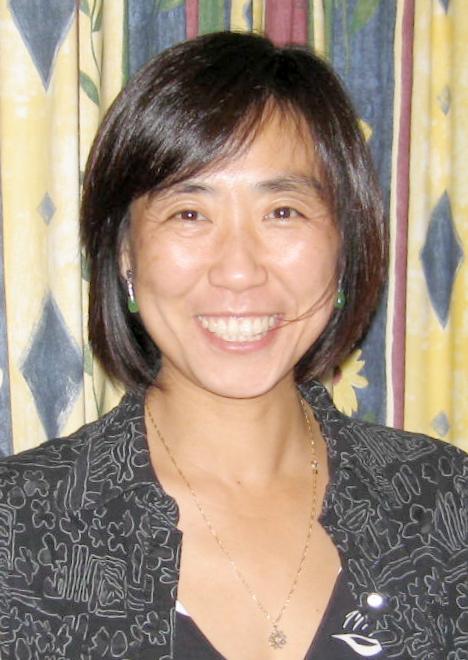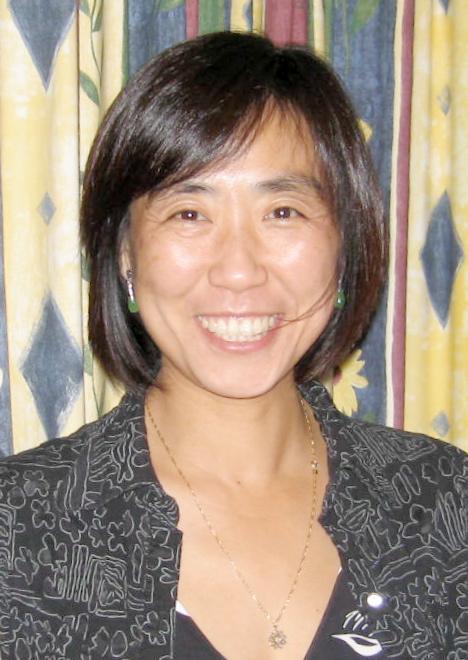
Credit: UMass Amherst
AMHERST, Mass. – Pathogenic fungi, the kind that cause wilt diseases in more than 100 plants species, can pose serious threats to agricultural productivity. Li-Jun Ma at the University of Massachusetts Amherst, an expert in fungal comparative genomics, has received a five-year, $880,000 National Science Foundation (NSF) Faculty Early Career Development (CAREER) grant to address this problem.
The Fusarium oxysporum fungus causes wilt in over 100 plant species including tomato, cotton, watermelon and banana, costing farmers billions of dollars in losses worldwide each year. The disease is difficult to control. Once the soil is infected, the fungus can remain viable for 30 or 40 years, and at present "there really is no way to control it," Ma says. By advancing understanding of the molecular mechanism of fungal pathogenesis, she hopes to increase ways to develop disease-resistant crops.
The CAREER grant is NSF's highest award in support of junior faculty who exemplify the role of teacher-scholars through outstanding research, excellent education and the integration of both. Ma is also supported by a Burroughs Wellcome Fund award to understand pathogenesis and develop new treatment options for human infections caused by fungal pathogens in the same species.
"We call them cross-kingdom pathogens because they cause diseases in both humans and plants," Ma explains. "Belonging to the same species complex, this group of pathogens may be controlled by similar mechanisms. Therefore, we could apply similar tools to study them and develop targeted means to control them."
One mechanism they share is genomics plasticity, where a genome of the pathogen can not only receive conserved genetic material from parent to offspring through cell division, but "horizontally," in a way different than traditional reproduction.
Ma says that while genes that control important functions for fungal survival are encoded in the conserved portion of the genome, the most critical genes controlling fungal pathogenicity are acquired horizontally. "Understanding this genome structure allows us to identify the master regulators that can be used as new targets; it's a technique that can be used to study both plant and human pathogens," she adds.
Her NSF CAREER grant focuses on the plant-pathogen interface, particularly the back-and-forth interactions between host immune factors and effectors dispatched by the pathogen, "which looks a lot like a ping-pong game taking place over eons," she explalins. "You can see the feud at the molecular level."
The ping-pong game refers to how pathogen effectors try to manipulate the host immune system, and how the plant develops methods to fight back. Ma says, "We will focus on this battleground, to mechanistically understand the complex interaction combining genomics, biophysics and experimental approaches. We expect this to bring us closer to the development of disease-resistant crops."
This project is based on preliminary work done with Ma by then-postdoctoral researcher Li Guo, who is now associate professor at Jiaotong University, China. At UMass Amherst, Kathryn Vescio will be working on it toward her Ph.D degree.
With this grant, Ma will also create a Course-Based Undergraduate Research Experience (CURE) to bring authentic research experience to undergraduate student education. To broaden its impact, she has formed a collaboration with her graduate school lab partner, Bernadette Germanakos at Dominican College in Orangeburg, N.Y., a teaching-intense college whose students are 40 percent first-generation college students, 66 percent women and over 40 percent minority students.
Through this effort, Ma and Germanakos will exchange research and teaching visits and their students will interact through summer research internships. Ma notes that student participation will also bring fresh minds to increase reproducibility and advance science. She credits Gabriela Weaver, director of the UMass Amherst Institute for Teaching Excellence and Faculty Development (TEFD), for help in developing the CURE course. "In a CAREER award, teaching is very important, but it can be challenging, especially when inter-institutional components are added," Ma says. "Help from TEFD made it possible."
###
Media Contact
Janet Lathrop
[email protected]
413-545-0444
@umassscience
http://www.umass.edu





